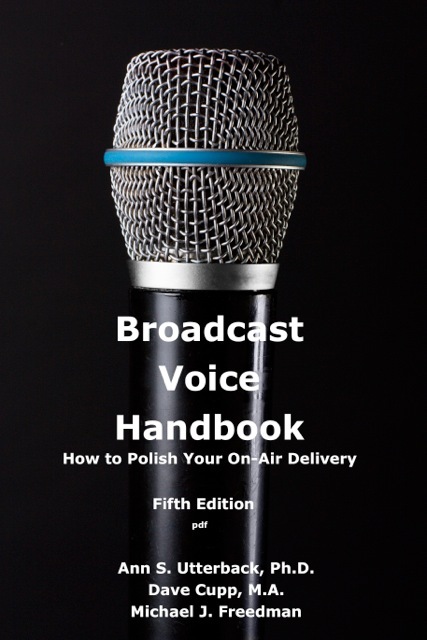|
VOICE ACTING Breath Control: How To Keep Your Voice (And You) From Fading Away ... June 7, 2016  By Ann Utterback By Ann UtterbackVoice Specialist and Author, Broadcast Voice Handbook I’m frustrated! I’m hearing more and more voice over artists fading away towards the end of each sentence, which means the listener has to strain to make out the last couple of words in that sentence. I’m not just blaming voice over people for this, because it can be equally true for broadcasters. Let’s tackle this problem. What causes the slow fade? Basically it’s because the person is not sustaining their breath for the duration of the sentence. They are not practicing good breath support. The bottom line is that breath support must be built. I feel anyone making money with their voice should be doing breathing exercises on a regular basis if, for no other reason, because as we age our breath support gets more difficult. PICK A FEW TO DO OFTEN Check this video for the basics of breath support and some great exercises. My basic advice is to make the last word of a sentence as strong as the first word. That’s an easy way to avoid fading away. MORE EXERCISES ... And here are additional exercises. Pick one or two and do them often! 1. Put one hand on your abdominal area just below your waistband. Now take a deep inhalation, pushing your hand out as you inhale. Sustain any of the following vowel sounds at a conversational volume as you exhale:
Stop vocalization when the sound begins to waver or sound weak. At first, your times may be in the 10 to 15 second range. Try to build your control of exhalation by adding a few seconds each time until you can sustain a vowel for 20 to 30 seconds on one exhalation. Keep a record of your progress. 3. Tear off the corner of a facial tissue. Stand about 6 inches from a wall and inhale so your abdomen expands as you did above. Exhale slowly and try to hold the piece of facial tissue against the wall with the force of your exhalation. Feel your abdominal area squeezing in as you exhale for as long as possible. 4. Keeping your hand on your abdomen, take a deep inhalation. With your exhalation, vocalize any of the lists below. Make certain that you do not take in any additional small gulps of air. You should be measuring your breath support by exhaling and vocalizing on only one inhalation. Keep a record of how far you go each time.
Along with good breath support comes the challenge of not letting air leak out when you pause in a sentence. To practice this, read the sentences below, making the last word as strong as the first - and pausing without letting any air escape at the slash marks. (These are not necessarily places you would ordinarily pause in these sentences.)
------------------------------------  ABOUT ANN ABOUT ANNAnn S. Utterback, Ph.D., is a voice specialist with more than 40 years experience and has helped hundreds of people make the most of their voices, working with broadcasters, voice over artists and podcasters around the world. An author of eight books and over 50 articles on voice, her Broadcast Voice Handbook is a classic textbook offering more advice on how to improve your voice over performance. Web: http://OnlineVoiceCoaching.comClick for: Broadcast Voice Handbook |
|
|
For essential voice-over business strategies
Get your bi-weekly dose here ... all things VO!
With Sean Daeley and Paul Stefano - check it out!
Inspiring interviews help your VO career
As of the NEW website launch, 03/22/2012


.gif)

.png)





Broadcasters partially get away with it because Optimod (and similar magic boxes) push up the volume to compensate - but you can clearly hear this happening because background noises come up as well.
Far better to get it right at the mike.
Thanks so much for you lovely comments. I'm so glad you found my suggestions helpful. It's readers like you who keep me blogging!
Ann
Thank you.